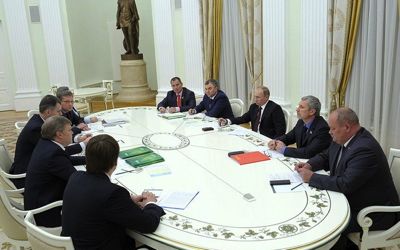
On 20 November 2013, President Vladimir Poutine received a delegation of the opposition political parties not represented in Parliament. Discussions centered on the respect for human rights in Russia.
Alexei Navalny was not invited to the Kremlin, his party not being legally registered.
During the meeting, the opposition leaders broached the issue of the recent law banning gay propaganda. The president answered that : ’’All that we have done, both at the executive and legislative levels, is to limit the propaganda aimed at minors (...) There is no way that we will create this kind of phobia against anyone in this society, including people with non-traditional sexual orientations.’’
Seizing on this declaration, gay activist Nikolai Alexeyev filed a request with Moscow City Hall to demonstrate ’’in support of President Putin’s pronouncement’’.
In Russian society, sexuality is regarded as a private matter, be it between different or same-sex people. However, it hasn’t always been this way. Whereas Lenin had created a gay soviet, Stalin cracked down on homosexual behavior[1]. The current Russian law is comparable to article 227-24 of the French penal code, whose wording can lead to contradicttory interpretations, and which prompted the creation of Voltaire Network in 1994. Current French jurisprudence respects both the rights of the population concerned and the protection of minors.
In October 2013 (prior to the aforementioned law), the European Court of Human Rights had condemned Russia for allowing Moscow City Hall to prohibit Nikolai Alexeyev from organizing a gay pride demonstration.
The Atlanticist Press has accused Russia of wanting to revert to the repressive practices that prevailed during the Soviet era.
















Stay In Touch
Follow us on social networks
Subscribe to weekly newsletter